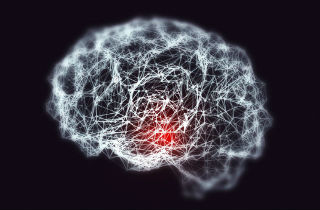Yes, you lose memory when you smoke weed, especially when you are high. But does memory loss get worse over time? We explore here.
Cannabinoid receptors and weed
Tetrahydrocannabinol (THC) is the main active chemical in marijuana. When someone smokes weed, THC rapidly passes from the lungs into the bloodstream, which carries THC to the brain and other organs throughout the body. THC half life is quite long (3-4 days) and when THC is active in the brain (1-6 hours after ingestion), THC acts upon specific sites called cannabinoid receptors, and triggers a series of cellular reactions. The two main receptors for cannabinoids are:
- CB1 (in the brain)
- CB2 (in the spleen and peripheral sites)
CB2 receptors are not psychoactive. But when CB1 receptors are stimulated, the chemical reaction produces both euphoria and impaired short term memory and sense of time. How and why does this happen?
Why do you lose memory when you smoke weed?
Experts are still researching exactly why and how THC works to impair memory. One theory is that cognitive effects related to memory loss (like the inability to remember words in a long sentence) may be due to a reduction in blood flow to the brain.
Other researchers think that memory impairment occurs when you smoke weed because THC messes with the hippocampus, a part of the brain which converts information into short term memory. THC alters how information is processed in the hippocampus by changing the way sensory information gets into and is processed by the hippocampus. This causes problems with short term memory so that new information may never register – and may be lost from memory – and complex tasks that require sustained attention or concentration become difficult. When THC attaches to receptors in the hippocampus:
1. THC creates structural changes to the hippocampus region of the brain.
2. New information does not register into the brain and can be lost from memory.
3. New information may not be retrievable for more than a few minutes.
4. There is a decrease in the activity of nerve cells.
Long term memory loss and chronic weed smoking
The link between short term memory loss and acute intoxication from marijuana has been proven. But we still don’t know the long term effects of daily smoking on memory. What we do know is that marijuana negatively affects learning and memory in chronic daily users. These adverse effects can last for days or weeks after the acute effects of the drug wear off. As a result, someone who smokes marijuana every day may be functioning at a suboptimal intellectual level all of the time.
Marijuana can be medically helpful
Some of the effects of THC are useful in the world of medicine and can be used to treat medical conditions by blocking pain and preventing nausea. So engineers are working to create medications that attach to the same receptors as THC …without the harmful effects. Although the debate around medical marijuana seems to address the euphoric effect of marijuana, there are legitimate concerns about the health risks of smoking marijuana and cancer.
Marijuana and memory loss
In sum, the THC in marijuana disturbs your ability to process and retain new information. So it’s really not wise to study when you get high. But the long terms effects of marijuana on memory have yet to be studied. Chronic marijuana use has become a part of western culture only recently, and longitudinal studies on the cognitive impact of marijuana have yet to make causal relationships. If you have something to share, please do so here!
We love your feedback!









Related Posts